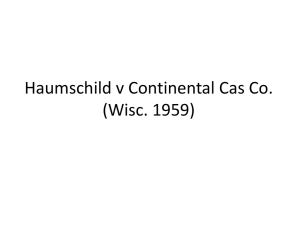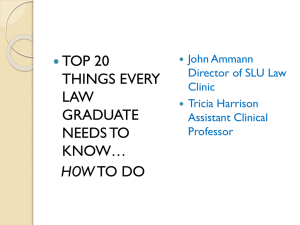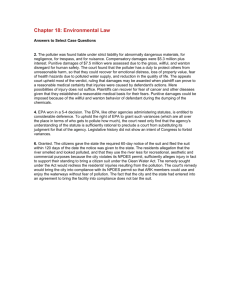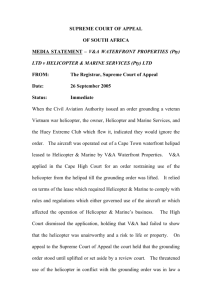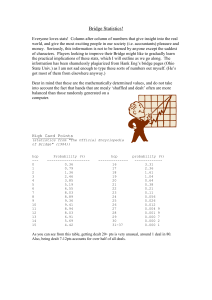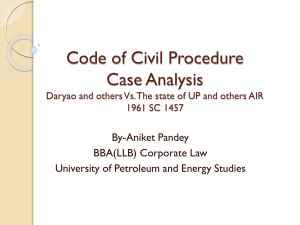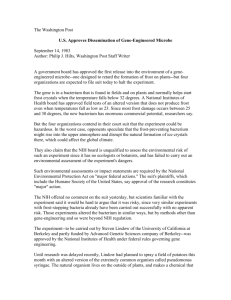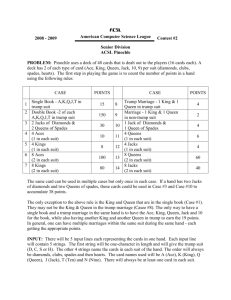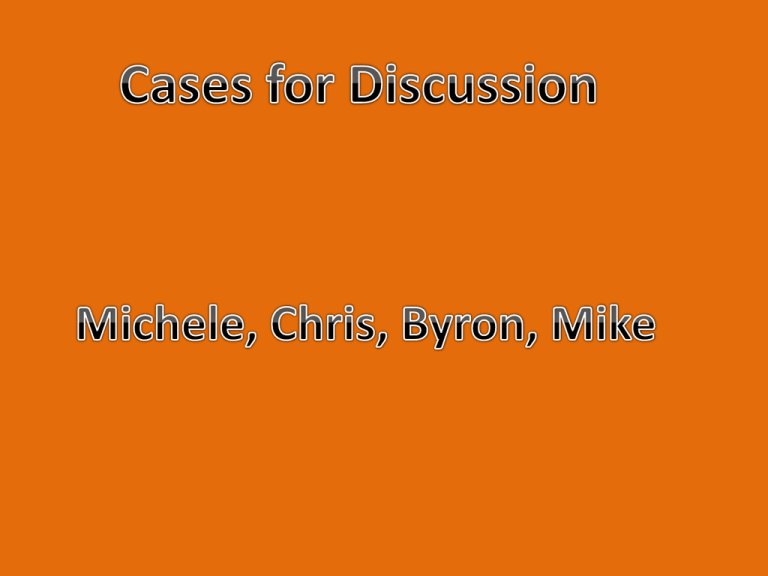
On May 7, Bart Masters turned 18. The
evening of that day, he was caught
stealing a woman’s purse. “Don’t worry,”
he told his friend Julia, “I just turned 18
today, they won’t try me as an adult. I’m
too close to being a juvenile.” Is he
correct?
No, he isn’t correct. Once you turn
18 you are tried as an adult no
matter what the circumstances
are.
Suppose someone has injured
you. Do you have a duty to sue
them for the injury even when the
costs of bringing suit may be more
than you can recover?
No, you don’t have to absolutely sue them
especially if the cost of the suit is more then you
will recover in the very end result. You would be
throwing away money rather than getting money.
If you were called to testify as a
witness in a friend’s criminal
trial, would you have the moral
strength to tell the complete
truth even if your friend might be
convicted as a result?
You would have to tell the truth in the trial
even if it’s your friend you can’t lie to jury
Because you would end up getting in
trouble for lying to the jury.
When a tip was received that marijuana was
being grown in his greenhouse, Michael
Riley’s property was observed from a
helicopter by an investigating officer. The
helicopter flyover was deemed necessary
because the items within the greenhouse
could not be observed from a nearby road.
Riley was subsequently arrested and tried for
offenses stemming from his cultivation
efforts. The defense challenged the use of
the information acquired by the helicopter
flyover saying that it was an illegal search
under the Fourth Amendment to the U.S
Constitution. The Florida Supreme Court
agreed with the defense. Could the state of
Florida appeal to the decision to the U.S.
supreme Court? Why or why not?
Yes, because it’s a federal issue.
The state of Florida did appeal
and the U.S. Supreme Court
reversed the Florida Supreme
Court and allowed the search.
The police did not have to get a
warrant to observe what is
obvious to the naked eye at
400 feet in the sky.
Priscilla is being sued in small claims
court by her landlord for past due
rent. “Just wait,” she exclaims. “Once
I get in front of that jury, they won’t
award him the money. After all, he
shut off the water several times and
didn’t even have heat in the building
for over a month last winter.” What
is wrong with Priscilla’s estimate of
the situation?
There are no juries in small
claims so the judge can
lower the standards of
evidence and not require
them to be represented by
attorneys.
June lost her case in trial court.
She thought that the plaintiff,
Sid, had lied during the trial. On
appeal, she requested that she
be allowed to appear and
explain why she thought Sid
had lied. Will her request be
granted?
No, because there are
no witnesses in the
court room and you
can’t appeal off an
assumption of
someone lying.
A 17-year old boy first appeared in
juvenile court to answer charges of
vehicular homicide. The incident had
occurred when he was 16. By the
time the case actually went to trial
the boy was 18. Should he be tried as
an adult? Why or why not?
The boy should get tried as
an adult because of his ages
the age limit for an adult is 18
so he would be going to jail
not to a juvenile court.
Colleen Donnelly filed charges with the equal employment
opportunity commission against her employer, yellow
freight, for sex discrimination. After she filed the charges,
colleen received notice from the EEOC that she had 90 days
to bring suit. This 90 day period was a procedure for claims
under the federal civil rights act of 1964. Within that period
Donnelly did indeed file suit but in an Illinois state court
under an Illinois statue that also prohibits such
discrimination. After the 90 day period had expired
however she tried to transfer the suit to a federal court.
Yellow freight defended claiming that she could not make
such a transfer as the 90 day period expired for federal
actions. Should she be allowed to go forward with her suit?
Why or why not?
Yes. She had proceeded in
good faith and had properly
filed in accordance with the
state statute and within the
90-day federal period
regardless of the court in
which the suit was brought.

